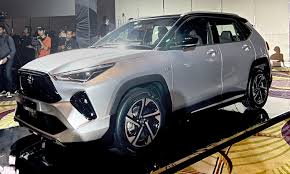Introduction
Collision insurance is a valuable component of auto insurance that provides financial protection for your vehicle in the event of an accident. In a world where accidents are a daily occurrence, understanding the role of collision insurance and how it can safeguard your investment is crucial. This article explores the importance of collision insurance, how it works, what it covers, and why it’s essential for responsible car ownership.
The Significance of Collision Insurance
Automobile accidents can happen unexpectedly, and the cost of repairing or replacing a damaged vehicle can be exorbitant. This is where collision insurance comes into play, offering the following key benefits:
- Vehicle Protection: Collision insurance covers the cost of repairing or replacing your vehicle if it’s damaged in a collision, regardless of who is at fault. This protection is especially valuable for newer cars, as repair costs for modern vehicles can be substantial.
- Peace of Mind: Knowing that you have coverage in place for accidents can provide peace of mind while driving. It allows you to focus on the road without constantly worrying about the financial consequences of a potential collision.
- Lender or Lease Requirements: If you’re financing or leasing your vehicle, your lender or leasing company may require you to have collision insurance as part of the agreement. Failure to comply could result in a breach of contract.
Understanding How Collision Insurance Works
Collision insurance is a type of coverage that pays for damage to your vehicle resulting from a collision with another vehicle, object, or as a result of overturning. Here’s how it typically works:
- Deductible: When you purchase collision insurance, you’ll choose a deductible amount. This is the portion of the repair or replacement cost that you are responsible for paying out of pocket. Common deductible amounts range from $500 to $1,000, but they can be higher or lower depending on your policy.
- Claim Process: In the event of a collision, you’ll file a claim with your insurance company. They will assess the damage and determine the cost of repairs or replacement.
- Payment: After the claim is approved, your insurance company will cover the cost of repairs or replacement, minus the deductible. You’ll pay the deductible directly to the repair shop or as required by your insurer.
- Premium Impact: Making a collision claim may result in an increase in your insurance premium. The extent of the increase can vary depending on factors such as the severity of the accident and your driving history.
What Collision Insurance Covers
Collision insurance covers the cost of repairing or replacing your vehicle in the following scenarios:
- Accidents with Other Vehicles: Whether it’s a rear-end collision, a T-bone accident, or any other collision with another vehicle, your collision insurance will come into play.
- Single-Vehicle Accidents: If your vehicle collides with an object, such as a tree, utility pole, or guardrail, collision insurance will cover the damages.
- Vehicle Overturns: In cases where your vehicle overturns due to a collision, your collision coverage will apply.
- Hit-and-Run Incidents: If your vehicle is damaged by a hit-and-run driver, collision insurance can cover the cost of repairs, often with an uninsured motorist deductible.
Why You Need Collision Insurance
- Protection for Your Investment: If you own a newer or more valuable vehicle, collision insurance helps protect the substantial financial investment you’ve made in your car. Repair or replacement costs for newer vehicles can be substantial, and collision coverage ensures you don’t bear the full burden.
- Compliance with Lenders or Lessors: If you’re financing or leasing your vehicle, collision insurance is typically a requirement to fulfill your lender’s or lessor’s terms and conditions.
- Peace of Mind: Collision insurance provides peace of mind. Knowing that you have coverage in place can reduce the stress and anxiety that often accompany driving, especially in high-traffic areas or adverse weather conditions.
- Flexibility in Repair Choices: With collision insurance, you have more flexibility in choosing where to repair your vehicle. You can opt for a reputable repair shop of your choice, ensuring quality workmanship.
Conclusion
Collision insurance is an essential component of responsible car ownership. It offers protection for your vehicle and peace of mind while driving in a world filled with traffic, accidents, and unexpected collisions. Whether you own a new car or an older one, having collision coverage can make the difference between a financial setback and a smooth recovery in the aftermath of an accident.
Before purchasing collision insurance, carefully consider your deductible and choose a level that aligns with your budget and risk tolerance. Additionally, periodically review your coverage and adjust it as needed to ensure it continues to meet your changing needs and circumstances. With the right collision insurance in place, you can drive with confidence, knowing that your vehicle and your financial well-being are well-protected on the road.
